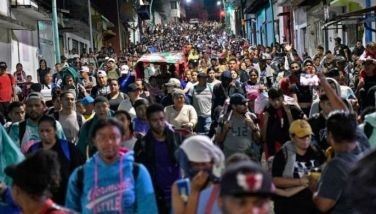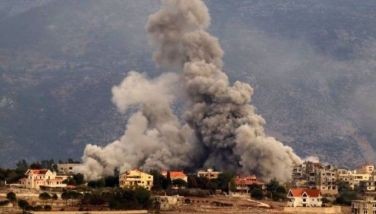Water rationing begins in Venezuela amid drought
CARACAS, Venezuela -- In deeply polarized Venezuela even the rain can set off political fighting.
As the country's dry season extends longer than normal, the water level at one of the three reservoirs ringing Caracas has fallen to near record lows. That prompted authorities on Wednesday to begin implementing a rationing plan that will leave some of the capital's 6 million people without water for as many as three days a week.
The government said the emergency plan is needed to confront a severe drought. They don't expect water at the Lagartijo reservoir to return to normal levels until August or September.
But opponents of the socialist government said President Nicolas Maduro and not mother nature is to blame.
Carlos Ocariz, mayor of the capital's Sucre district, said there hasn't been a single reservoir built during 15 years of socialist rule. Instead of waiting for storage ponds to dry, the government should have implemented a less burdensome, water-saving plan months ago, he said.
"We didn't have to wait for things to reach this point to begin taking action," Ocariz said in a statement.
Water shortages are nothing new in Venezuela, especially in poorer neighborhoods that lack proper urban planning. During the last extended drought, in 2009, water levels at many hydroelectric power generators also fell to critical levels, triggering blackouts across the country.
While nobody is predicting such a severe crisis this time, the squabbling isn't likely to abate. For months, opponents of Maduro have been on the streets protesting against everything from galloping inflation to rampant crime.
Still, as the rationing plan took effect Wednesday, there was one development that both sides could welcome: a late-afternoon shower.
- Latest
- Trending































